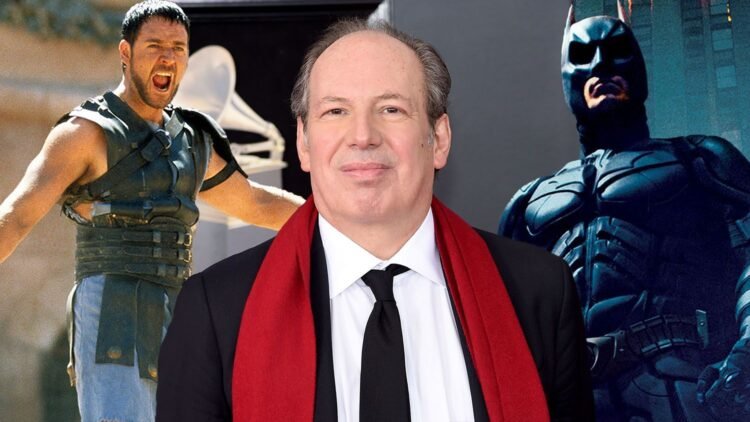In the field of film scores, Hans Zimmer is one of the most well-known and in-demand composers. Dune and No Way to Die, his most recent film scores, join a long list of credits that includes science fiction blockbusters like Blade Runner 2049 and Interstellar, as well as animation flicks like Kung Fu Panda.
Understandably, Christopher Nolan was upset when Zimmer chose to score Dune instead of Tenet, especially because the two had already worked together on multiple projects, including the Dark Knight trilogy.
Zimmer won a Grammy for Best Score Soundtrack Album for his work on The Dark Knight (shared with fellow composer James Newton Howard). Zimmer’s superhero film compositions, on the other hand, are not restricted to The Dark Knight trilogy.

His music may also be found in several other superhero films, which will be familiar to fans of the genre.
While some of his compositions sound similar from track to track and even from film to film, these ten superhero movie tracks capture the essence of their respective films and prove to be download-worthy for listeners.
Table of Contents
1. “Terraforming” (Man of Steel)
The entire Man of Steel album is jam-packed with fantastic tracks, the majority of which have their own distinct but complementary sound.
The term “terraforming” is used in the film during a scene in which Superman, with the assistance of the military, attempts to prevent General Zod from destroying the entire planet.
The track, which clocks in at a little under 10 minutes, has the film’s signature undertone. Other similar, shorter tracks appear on the album, but the ten-minute length is just long enough to create tension without becoming tedious, which fits with the movie’s scene.
Among several excellent tunes, “Terraforming” captures the film’s most dramatic tones. The song “Terraforming” can be found on the deluxe film album (worth the extra cost for the extra tracks).
2. “Flight” (Man of Steel)
The track “Flight” captures the Man of Steel theme’s dramatic intensity in a shorter amount of time than some of the other, longer-score pieces. Flight, which appears in the film as Clark dons his suit and begins to understand his powers, symbolizes Clark’s transformation into Superman.
“Flight” is included in the film in part as Jor-conscious El encourages Clark to realize his destiny on Earth. Jor-voice, El’s, together with the “Flight” music, constitute a milestone for the character and franchise as one of the primary influencers.
Flight has a four-minute run time and maintains a constant increase in intensity, which is absent from other of the album’s longer pieces.
Listeners who want more of a Man of Steel vibe but don’t want to buy the whole album can download the track “Man of Steel (Hans’ Original Sketchbook”) from the deluxe edition. That song, which runs for around 28 minutes, is a collection of dramatic passages from the film’s score.
3. “Is she with you?” (Batman v. Superman: Dawn of Justice)
The Batman vs. Superman film music by Hans Zimmer and Junkie XL includes some fantastic tracks, despite the film’s divided reviews.
Much of the music in the film has melodies that are comparable to Zimmer’s past work, although the victorious, heroic swells of Man of Steel are replaced with suppressed, angry undertones in “Is She With You?”
“Is She With You?” differs from the rest of the album in that it incorporates pieces from both the Man of Steel and Wonder Woman themes. Until the percussion builds into the Wonder Woman theme, the track sounds like Man of Steel.
As a result, the mood is more heroic than in the other film’s music. “Is She With You?” captures all of the good aspects of the first Wonder Woman movie theme coupled with the gritty feel of Batman v Superman.
4. “The End” (The Dark Knight Rises)
The Dark Knight trilogy’s three soundtracks are all excellent, although several of the tracks sound remarkably similar, and some listeners may not want to flip through three albums to find the greatest tracks.
“The End” is one track that manages to combine great sounds from previous Batman films such as Batman Begins and The Dark Knight while also remixing to create a new sound.
“The End” is a six-minute track that sounds like it belongs in all three films and portrays Bruce Wayne’s journey as Batman from beginning to end.
Until around four minutes in, when the intensity rises, the tune has a somber, mournful vibe that harkens back to the first two films. “The End” is a song that isn’t used in the movie at all.
5. “Bombers Over Ibiza” (The Dark Knight Rises)
The influence of Junkie XL can be heard on this track, which is a nice change of pace from the rest of the album. The music is included as a bonus on the digital album despite not being used in the film.
Any other part of the record does not showcase the quick, techno beat as prominently. A quick tempo rises until Bane’s deep, sinister overtones take over around the 2-minute mark of the song.
Zimmer’s score for The Dark Knight included an industrial electronic feel that wasn’t evident in Batman Begins, and that industrial electronic blend is more visible in The Dark Knight Rises, thanks to Junkie XL’s influence.
6. “Why do we fall?” (The Dark Knight Rises)
“Why Do We Fall?” is two minutes long, just long enough to be intense while also setting a mood. In addition, the song is featured in one of the film’s most pivotal scenes.
Despite being such a short track, the song remains intense throughout, matching its use in the film. The song “Why Do We Fall?” is named after a scene in the film in which Bruce’s father asks him the same question.
As Bruce emerges from the underground prison, the song plays. A small pause happens at 1:30 minutes into the song as Bruce accomplishes the unthinkable jump during his escape. “Why Do We Fall?” is a shorter tune that is similar to the topic in the “Rise” track.
7. “Like a Dog Chasing Cars” (The Dark Knight)
While the CD as a whole is fantastic, many of the tunes on The Dark Knight Score are identical to (and even better than) those in The Dark Knight Rises.
“Like a Dog Chasing Cars” is unusual in that it builds steadily for the first three minutes before calming down in the final two. Unlike Batman Begins, The Dark Knight employs electronic and industrial sounds, which are appropriate for the film’s chaotic action.
Many of the same melodies and dramatic peaks can be found throughout the album. “Like a Dog Chasing Cars,” on the other hand, is brief enough to avoid repetition while also providing the dramatic development that distinguishes Zimmer’s entire score.
The title is derived from a statement spoken by the Joker in the film. While the music is not featured in its entirety in the film, it is heard in parts throughout Gordon’s rooftop showdown with Batman and Batman’s fight to save the clown-disguised hostages.
8. “Molossus” (Batman Begins)
“Molossus” pounding pace becomes a memorable and recurring theme in all three of Christopher Nolan’s Batman films. Along with Zimmer, James Newton Howard is credited for the first film.
All of the tunes on the Batman Begins soundtrack are Latin names for bats, a feature that was only introduced in the first Batman film.
“Molossus” is featured in separate action sequences throughout the film, which is appropriate given the urgency created by the horns’ rising intensity mixed with smooth string sequences.
While Zimmer will not be composing the score for “The Batman in 2022,” Michael Giacchino’s new theme appears to be promising.
9. “Open Road” (Wonder Woman 1984)
With portions from the Dark Knight score, “Open Road” has comparable themes and intensity to “Is She With You?” from Batman v Superman.
The music switches from the classic Zimmer/Batman theme to Wonder Woman’s unique and rapid sound about a minute into the song. From there, the tune grows in intensity until three minutes, when the “Themyscira” theme from the film’s other tracks is featured.
In just 5:30 minutes, “Open Road” contains all of the album’s high-quality sounds, building in intensity until the very end.
10. “Radio Waves” (Wonder Woman 1984)
“Radio Waves” is an 8-minute soundtrack tune that contains the same qualities as many of Zimmer’s larger score pieces.
Even though Zimmer did not score the first Wonder Woman film, “Radio Waves” is a piece of music from 1984 that shows Zimmer’s influence.
The throbbing bass notes in the first two minutes hint at the villain’s (Max’s) intentions in the film. The brass gradually intensifies until the Wonder Woman theme appears.
Using Zimmer’s trademark brass and strings combination, the music alternates between evil and good tones. The entire track is a roller coaster of excitement.
11. “Dark” (X-Men: Dark Phoenix)
A good soundtrack may be found in even the worst of films. Even though Dark Phoenix was not well received by critics, Zimmer managed to make the film sound terrific.
“Dark” is a 4:30-minute tune with the same theme that sounds like the larger 8-minute track “Gap.” “Dark” showcases the score’s theme with a more furious pace in half the time.
Throughout the film, the same industrial noises heard in Wonder Woman and The Dark Knight are present, along with very sorrowful vocals. The entire soundtrack sounds quite similar, although “Dark,” which has the score’s main theme and atmosphere, has the most fascinating speed.
Also Read: 10 Best Roles Played By Mark Wahlberg














